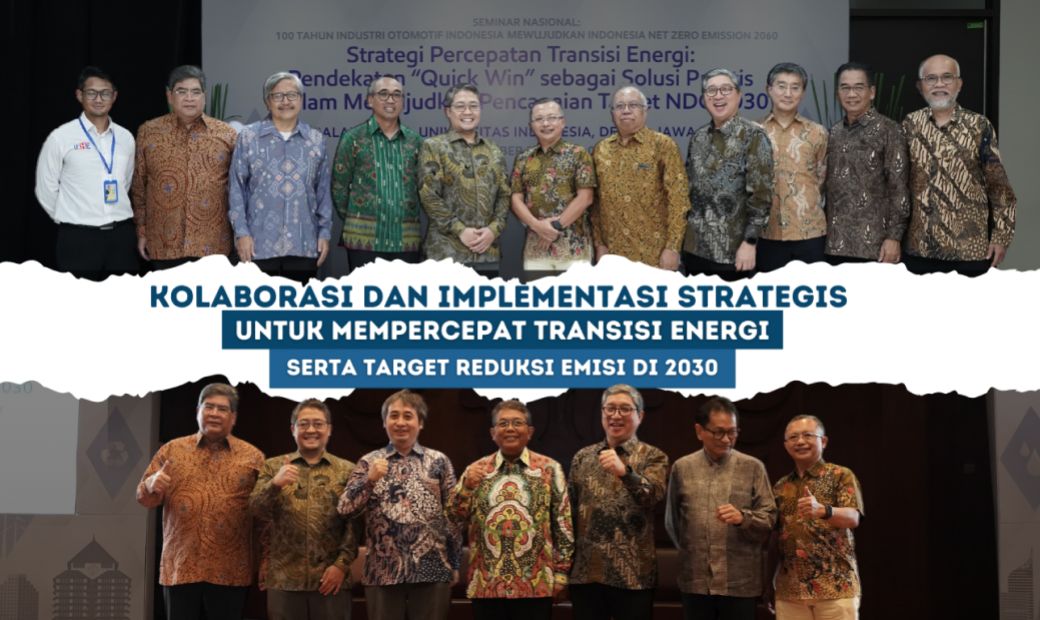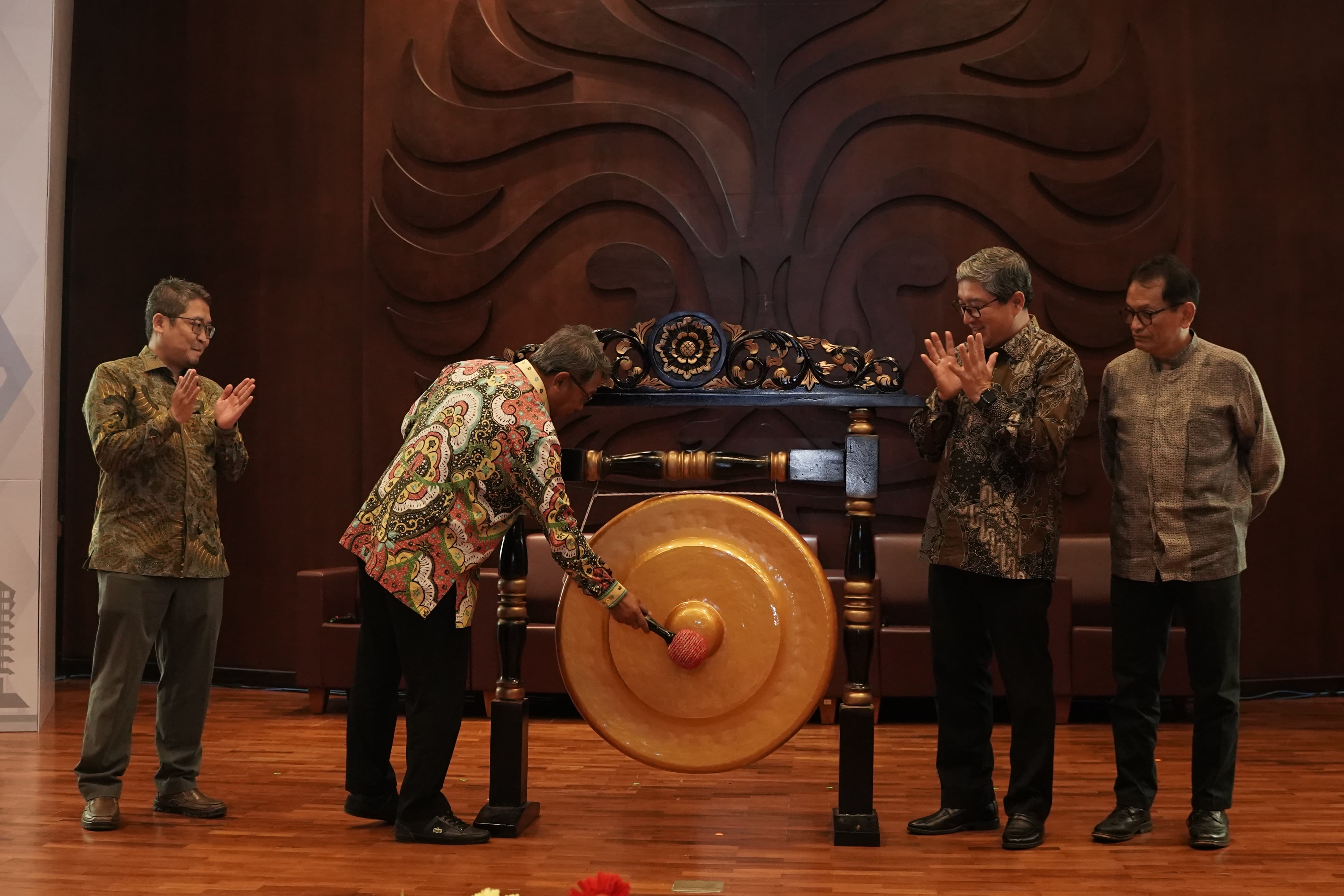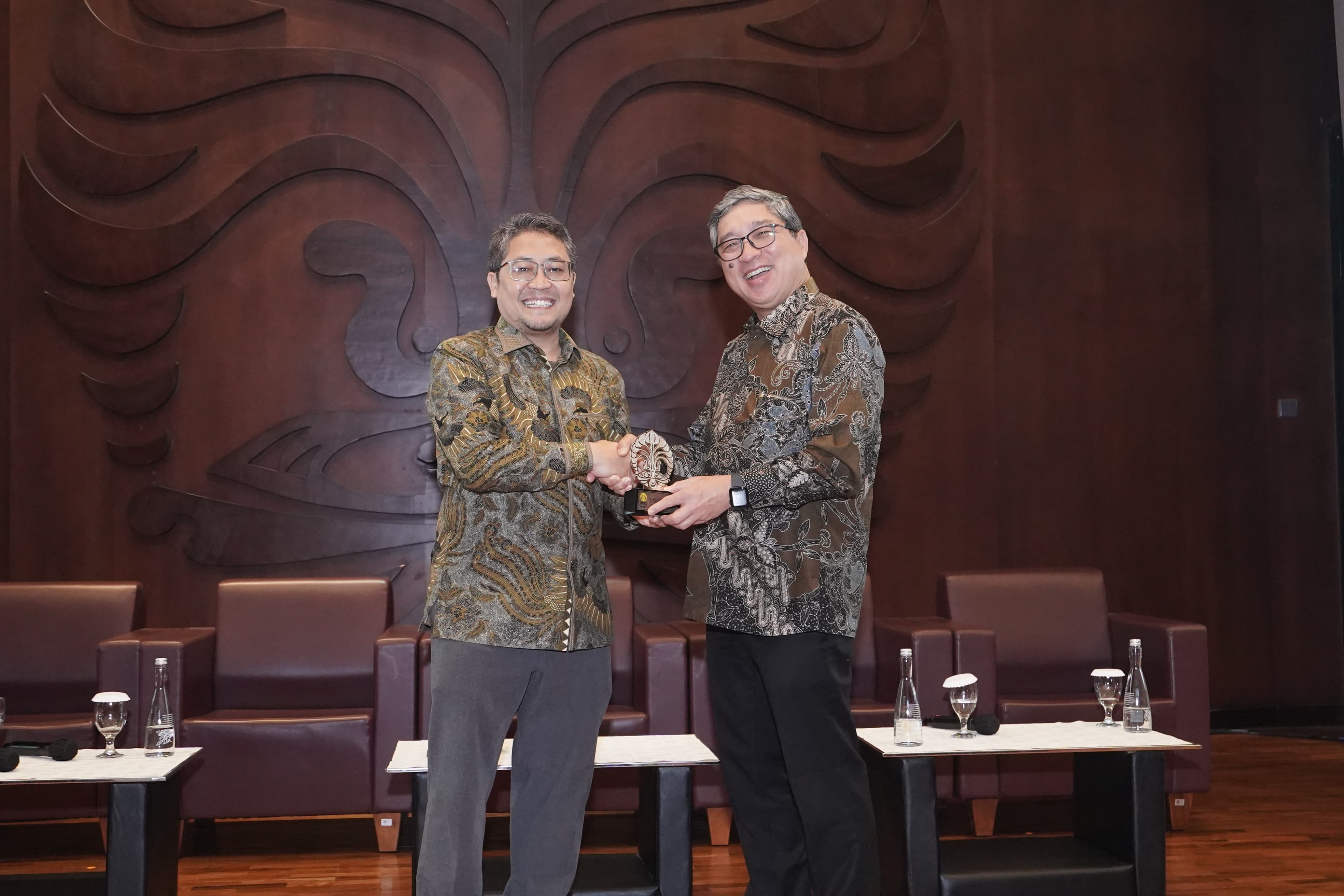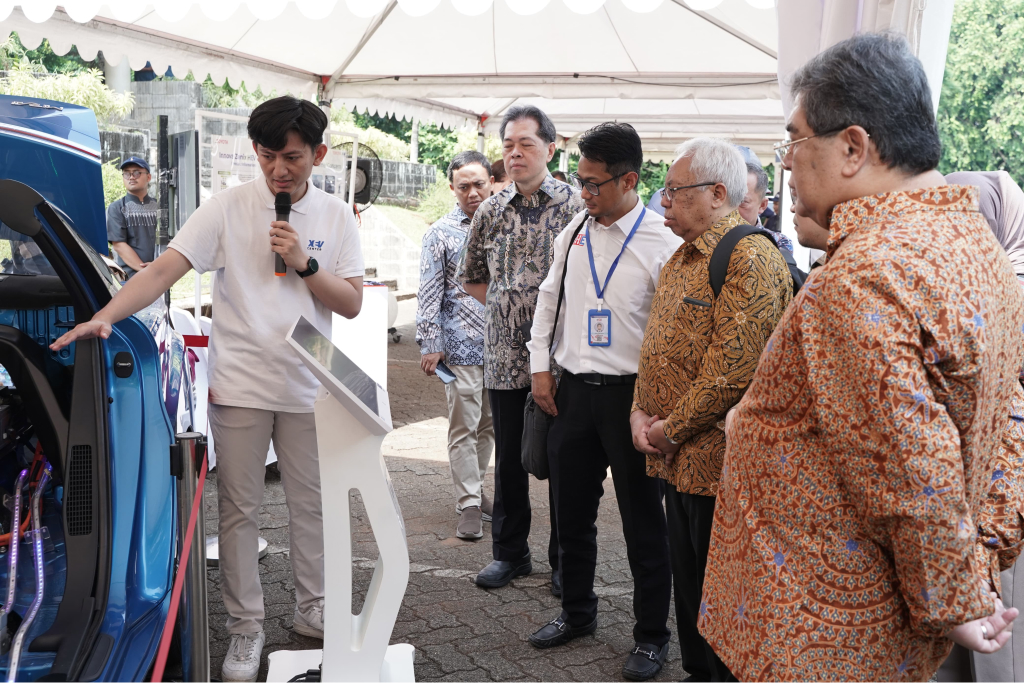Please fill in some of the data provided below to receive the latest Toyota-related news and information in your email.


Depok, Universitas Indonesia - After organizing 6 series of national seminars in a number of universities in Indonesia, this time the 7th series of national seminar activities was held at the University of Indonesia (UI), precisely at the University of Indonesia Session Hall. The national seminar in the framework of 100 years of the Indonesian automotive industry realizing Indonesia Net Zero Emission 2060, raised the theme "Strategy for Accelerating Energy Transition: A "Quick Win" Approach as a Practical Solution in Realizing the Achievement of the 2030 NDC Target." This series of seminars is a continuation of the entire series of national seminars that have taken place at Diponegoro University (UNDIP) Semarang, Udayana University Bali, Sepuluh November Institute of Technology (ITS) Surabaya, Bandung Institute of Technology (ITB) Bandung, Sebelas Maret University (UNS) Solo, and Gajah Mada University (Yogyakarta).
In the face of global challenges related to climate change and efforts to reduce carbon emissions as much as possible, energy transition is key to creating a more sustainable future. The synergy and involvement of various sectors in the "Triple Helix" collaboration between the Government, Academia, and the automotive industry are expected to play a significant role. The goal is to encourage the transition period through various initiatives that support the use of diverse energy, as well as technology to reduce emissions, especially in the transportation sector. In fact, activities and initiatives to reduce emissions will not disrupt economic stability and even have a positive impact on the environment.

"The national seminar activities that have been going on for 7 series in various universities in Indonesia since 2022 until now, are a concrete form of advocacy to the public. In particular, it is aimed at the younger generation who are an important element supporting a greener life ecosystem, to equitable national economic development. In addition, this national seminar activity is a comprehensive discussion forum to help formulate strategies and policies to accelerate Indonesia, towards the energy transition era in 2030," said Nandi Julyanto, President Director of PT TMMIN.
Energy transition with the implementation of New Renewable Energy (EBT), plays an important role in maintaining energy availability, and a greener environment for future generations. Toyota Indonesia comes with a multi-pathway approach, which is a synergy of various low-emission vehicle technologies, including electrification with the utilization of low-emission energy.
"A number of initiatives meet the 2030 emissions reduction target, serving as a steppingstone towards the larger goal of 2060. Strategic implementation is needed to accelerate the energy transition. Referring to the principle of reducing emissions as much as possible with various technologies, to provide real results in a short time. This is in line with the theme of this seminar, "Accelerating the Energy Transition Towards Quick Wins." The implementation of green energy can also be realized as a decarbonization activity. Not only helping economic growth, but also contributing to the welfare of Indonesian farmers through the positive cycle formed, which aims to create a balance of economic and environmental sustainability in the future," said Bob Azam, Vice President Director of PT TMMIN.
At the UI national seminar activity, Toyota Indonesia also made a contribution with the theme of green economy to representatives of FEB UI for research support and community service so as to strengthen the academic and social relevance of universities. The support provided will be used for research and community service purposes, especially those related to the green economy.

Multi-technology Strategy Accelerates Energy Transition
There is no single solution to the energy transition era - all solutions and technologies have their role to play, and can contribute to emissions reductions. Efforts to reduce carbon emissions as set by the Government of Indonesia, require the transformation of the industry and its business. Toyota Indonesia has taken the initiative to welcome the energy transition era to achieve the carbon emission reduction target set by the Government, by introducing various vehicle models that can reduce emissions through a multi-pathway strategy. Both conventional fuel-efficient vehicles, vehicles with biofuel including bioethanol, and electrified vehicles.
Green energy such as biofuel, ethanol, hydrogen, and optimization of renewable energy in manufacturing processes that are more environmentally friendly, not only reduce emissions. Increased use of EBT also helps the welfare of Indonesian farmers. Not only reducing emissions, but increasing the use of renewable energy will also help the welfare of Indonesian farmers.
"The use of renewable energy such as bioenergy can help reduce dependence on fossil fuel consumption in all relevant sectors such as power generation, domestic, industrial, and transportation sectors. Bioenergy, including bioethanol and biofuels, plays a major role in supporting Indonesia's energy transition and emissions reduction," said Nandi Julyanto."

The electrification era must not leave the national automotive industry, which has played a major role in Indonesia's economic growth (No One Left Behind). Each technology has its own role. All must be developed to meet national goals. A combination of low-emission vehicles such as LCGC and flexy engines (bio diesel and bio ethanol), HEV, PHEV, BEV, to FCEV.
This is also in line with the "Beyond Zero" vision that guides Toyota's efforts towards carbon neutrality with various technological solutions. "Beyond Zero" signifies a commitment to explore innovative strategies and solutions to create a sustainable future. This vision guides Toyota's efforts to achieve carbon neutrality through products, services, and operational activities. It is not only about eliminating emissions, but also about environmental sustainability and energy security. This principle also has a positive impact in generating a circular economy, which aims to maximize the use of existing resources, while minimizing environmental impacts. The circular economy focuses on sustainability and efficiency, in contrast to the linear economy that tends to produce, use and dispose.
All levels of society, especially the younger generation, can contribute to various emission reduction activities. Various vehicle technology options can be selected according to diverse public needs, in order to accelerate the development of an integrated multi-pathway or low-emission vehicle ecosystem from upstream to downstream. This strategic step aims to make Indonesia a production base and export hub for highly competitive vehicles, as well as playing an important role in developing the supply chain and local SMEs , concluded Bob Azam.
SeminarNasional, TransisiEnergi, ReduksiEmisiMedia/Journalist Contact : [Memuat email...]
Non Media / Non Journalist Contact : [Memuat email...]

© 2024 Toyota Motor Manufacturing Indonesia. All Rights Reserved.
